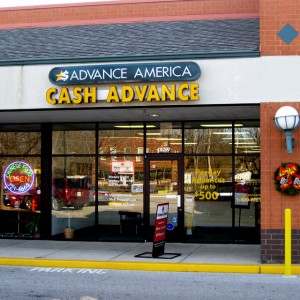Time for a national usury law?
First Premier Bank has just introduced its new 79% interest rate sub-prime credit card. No, that's not a typo, and some experts expect to see more credit cards with sky-high interest.
Which makes me again bring up the topic of a national usury cap. Thomas Geoghegan recommended such a cap last year, in his article in The American Prospect. He suggested a credit card interest cap of 12% and a law completely barring payday loans. I have filed several class action suits against large payday lenders (here's a post on one of those suits). These lenders often argue that people need these 400% interest loans for short term emergencies. At what cost, though? In my experience, these lenders are commonly stretching out these "short term" loans for many months. People who borrow $500 will pay $2000 in interest over the year and they will STILL OWE THE $500.
Many states allow payday lenders to charge in excess of 1000% interest. These loans suck the very life out of working class folks. They amount to financial crack cocaine, because people often end up taking out a second, and a third payday loan in order to pay off the first one. It's a terrible mess and it's ruining lives. That's why 13 states have passed laws making sure that payday lenders cannot operate in those jurisdictions. It's time for the other states, and Congress, to get with the program.
To put this all in perspective, remember the stories about "loan sharks?" Those were the good old days. "Simple nominal annual interest rates on extortionate mafia loan shark debts averaged 250%." Syndicate Loan-Shark Activities and New York's Usury Statute, 66 Colum. L. Rev. 167, 167 (1966).
And here's another irony. The Bible clearly holds that usury is a sin comparable to murder. Usury is prohibited by Exodus 22:25: "If thou lend money to any of my people that is poor by thee, thou shalt not be to him as an usurer, neither shalt thou lay upon him usury.” Usury is also prohibited by Leviticus 25:35-37. In spite of these Bible quotes, if you want to find lots of payday stores and payday lenders, look for geographical areas where you'll also find conservative Christians. That is the finding of Steven M. Graves and Christopher Peterson, in a law review article entitled "Usury Law and the Christian Right: Faith-Based Political Power and the Geography of American Payday Loan Regulation," 57 Cath. U. L. Rev. 637, 640 (2008):
I have filed several class action suits against large payday lenders (here's a post on one of those suits). These lenders often argue that people need these 400% interest loans for short term emergencies. At what cost, though? In my experience, these lenders are commonly stretching out these "short term" loans for many months. People who borrow $500 will pay $2000 in interest over the year and they will STILL OWE THE $500.
Many states allow payday lenders to charge in excess of 1000% interest. These loans suck the very life out of working class folks. They amount to financial crack cocaine, because people often end up taking out a second, and a third payday loan in order to pay off the first one. It's a terrible mess and it's ruining lives. That's why 13 states have passed laws making sure that payday lenders cannot operate in those jurisdictions. It's time for the other states, and Congress, to get with the program.
To put this all in perspective, remember the stories about "loan sharks?" Those were the good old days. "Simple nominal annual interest rates on extortionate mafia loan shark debts averaged 250%." Syndicate Loan-Shark Activities and New York's Usury Statute, 66 Colum. L. Rev. 167, 167 (1966).
And here's another irony. The Bible clearly holds that usury is a sin comparable to murder. Usury is prohibited by Exodus 22:25: "If thou lend money to any of my people that is poor by thee, thou shalt not be to him as an usurer, neither shalt thou lay upon him usury.” Usury is also prohibited by Leviticus 25:35-37. In spite of these Bible quotes, if you want to find lots of payday stores and payday lenders, look for geographical areas where you'll also find conservative Christians. That is the finding of Steven M. Graves and Christopher Peterson, in a law review article entitled "Usury Law and the Christian Right: Faith-Based Political Power and the Geography of American Payday Loan Regulation," 57 Cath. U. L. Rev. 637, 640 (2008):
We conclude, with a high degree of statistical certainty, that states with powerful conservative Christian populations tend to host relatively greater numbers of payday loan locations per capita as well as a greater commercial density of payday lenders. These findings propound a tragic and sad irony. Those states that have most ardently held to their pious Christian traditions have tended to become more infested with the progeny of money changers once expelled by Christ from the Hebrew temple. Legislators in those states, who have effectively used biblical principles to shape their legislative agenda on social and cultural issues, have failed to consistently apply biblical principles to economic legislation.
All it would take for Congress to outlaw payday loans is to write up a bill, have a majority of members of Congress approve of it, and then refer it to the President to sign it. But that can't happen these days because the financial services industry pays our politicians huge amounts of money so that they WON'T sign these sorts of bills. And, of course, with regard to Congress, the banks "frankly own the place."